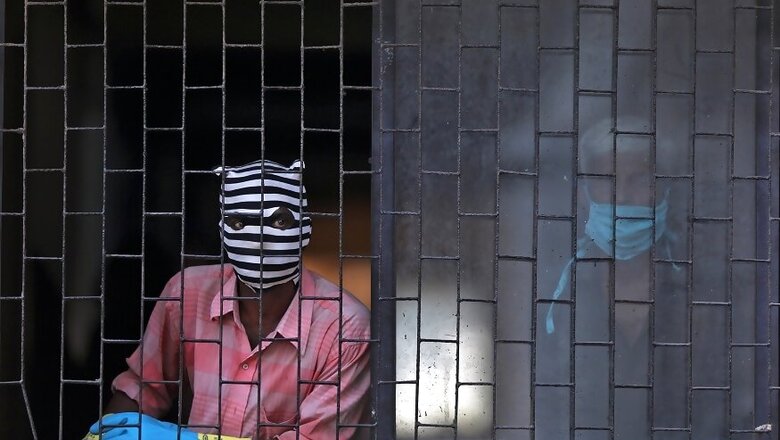
views
Chennai: Most are waiting for the situation to improve to get it done. Some are giving it a shot themselves, while some are getting help from partners and family members. A few are even going the illegal route, calling on experts to their homes amid the lockdown.
The haircut and salon industry doesn't come under the government's list of essential services during the coronavirus enforced lockdown, but with every passing day, many people who haven't had haircuts are growing restless. Several shops had been running illegaly and duly been sealed by the authorities, particularly after a salon shop owner in Chennai tested positive for the virus last week. Some barbers have even been servicing clients in their homes.
The industry is currently stuck somewhere between 'essential' and 'temporarily avoidable'. What will be its future once the situation improves, especially considering it goes against 'social distancing' norms?
Sam Paul, the chairman and managing director of Toni and Guy chain of salons in India, says the 'uncertain times' could extend till September or even further, but has no doubt that haircuts are an essential services that cannot be done at home in the long run.
"Everybody has to get his hair cut after this problems are over. There is no question of getting scared," he says. "The haircut and saloon industry is an essential service. It's impossible to get a proper haircut at home. There's also a sentiment that you shouldn't cut hair or nail inside the house. The house will also get dirty.
"I don't see any hit on the salon industry in the long run. Salon industry is a recession proof industry, nothing will affect it. Some expensive services like keratin treatment or coloring or things like that which cost Rs 10000 to 12000 could see a small drop. But the haircut and basic things cannot be avoided."
The key factor to convince people to come to salons in the long run, according to Paul, will be hygiene more than cost. Paul expects this to turn into an advantage for bigger brands which have set higher standards for safety.
"We had already started safety measures (before the lockdown on March 25)," he says. "We have protective gear up to the head. We even asks clients to wear masks, except for shaves. This was operational from March 6. All chairs, door knobs and other places where clients touched regularly were disinfected every 25 minutes.
"We feel everything is an advantage. People might think twice before going to a normal barber shop, so they'll start upgrading. The unorganised sector will come to the organised sector. If they see that the hygiene quality is not maintained in a normal salon, they might think it's better to pay a bit more and go to an Essensuals. They'll rather move to a brand in an organised sector than take the chance in a normal salon."
What then will happen to the thousands of smaller shops across the city and state? Munuswamy, Tamil Nadu Barber Workers Association President who has a salon in Anna Nagar, says it's the smaller shops that have been most affected.
"Barbers' livelihood across the state has been hit severely. There will be around 10 lakh barbers in Tamil Nadu, but a lot of them have not registered formally in the labour board, making it difficult for them to get all the benefits. Only when we open our shops will our livelihood improve. But even in this situation, we're advising barbers not to go to people's houses for work."
Munuswamy concedes there will be a fear about small shops in the future, but stresses they too are capable of maintaining high hygiene standards. The smaller players are not worried about losing customers to bigger brands as they count on rapport with the people.
"Yes, there will be a fear," he says. "But we've asked saloons to maintain hygiene and cleanliness. Things will be different when we re-open. Instead of towels, which are reused, shops could start use and throw tissue papers.
"There's no chance of coronavirus spreading through us. If that was the case, many diseases would have spread from saloons. So people can come to us without fear.
"Our customers are like our friends. We have a rapport with them so they are used to coming to us. They won't shift all of a sudden. Customers for the big shops are different. Their rates are higher so we won't be affected by them.




















Comments
0 comment